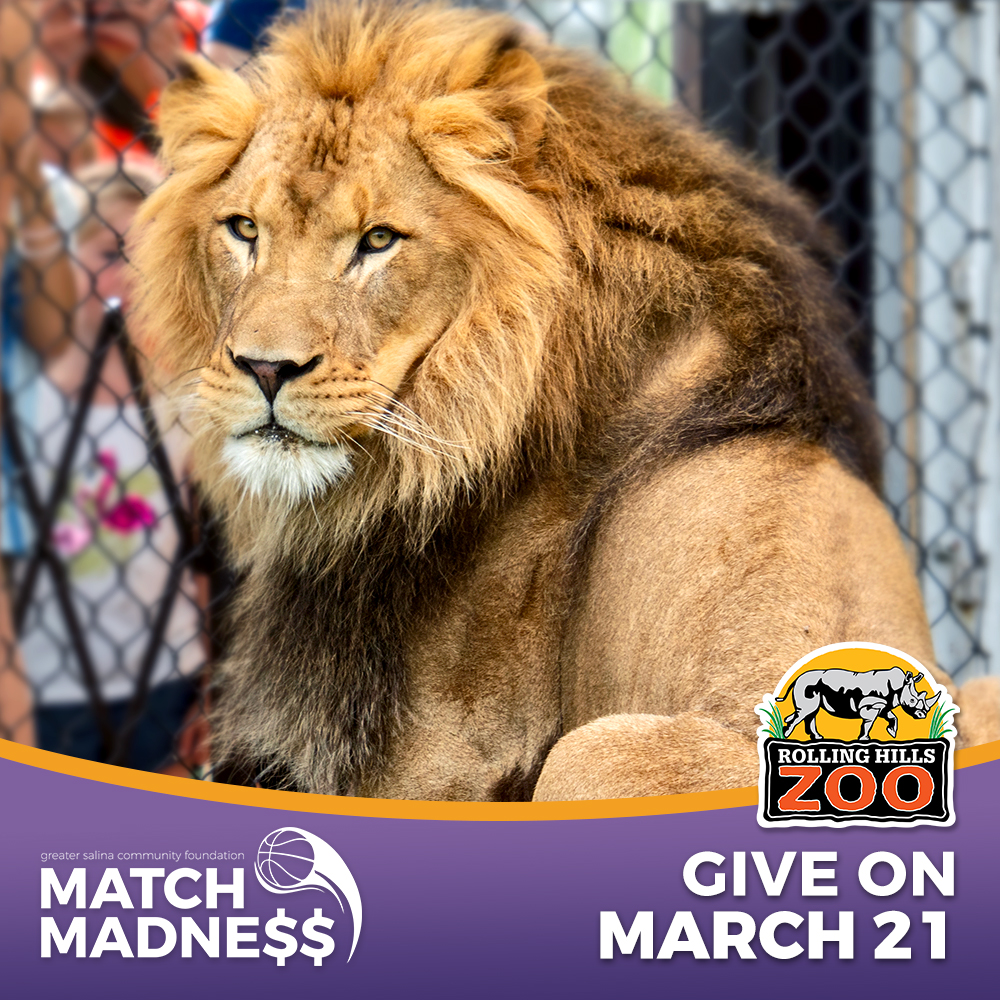– Oskar’s lion-sized appetite and the nutritional demands of large carnivores
– The importance of funding and donations in zoo management and animal care
– The positive impact of community involvement and charitable events on wildlife conservation
– The role of proper feeding practices in maintaining the health of zoo animals
– How conservation efforts at places like Rolling Hills Zoo contribute to broader environmental goals
When we think about a lion’s appetite, it’s often described in terms of grandeur, fitting for this majestic animal. Oskar, a lion with a substantial presence at Rolling Hills Zoo, consumes 70 pounds of meat weekly. To an average person, this may sound like an incredible amount. Still, for a lion, it’s a perfectly tailored diet that supports his regal status as the apex predator of his ecosystem.
Lions, known as some of the most formidable carnivores on earth, require a protein-rich diet to fuel their muscular bodies and maintain their health. Ensuring these nutritional needs are met in a zoo environment is a principal responsibility. The diet of a zoo-living lion-like Oskar closely mirrors what a lion would naturally consume in the wild. Whole carcasses or large chunks of meat, complete with bones, are often integrated into their diet to mimic natural feeding behaviors and provide the necessary nutrients.
However, sufficient funding is required to support Oskar’s impressive diet and the needs of the other animals at the Zoo. It’s here that community support and benevolence shine. The Greater Salina Community Foundation’s Match Madness event represents a powerful opportunity for individuals to make a tangible impact on the day-to-day operation of the Rolling Hills Zoo. Programs like these allow communal resources to consolidate, offering the chance to deliver substantial aid to wildlife care and conservation.
Donations are vital in the intricate operations of modern zoos and aquariums. Financial backing helps feed animals and supports habitat maintenance, veterinary care, educational programs, and conservation initiatives. During Match Madness, every contribution toward Rolling Hills Zoo is elevated by a 50% match, thus amplifying the benefactor’s intent to safeguard animals like Oskar and their compatriots.
Community engagement in wildlife preservation is more than just a charitable act; it invests in biodiversity and environmental stewardship. Zoos like Rolling Hills act as arks for endangered species, offering a chance for critical research that can’t be conducted in the wild. They also serve as educational platforms, fostering a connection between humans and the animals they wouldn’t normally encounter. This bond often inspires conservation efforts beyond the Zoo’s borders.
Feeding practices have evolved over the years in zoological settings. Efforts are made to ensure the diets offered replicate the animals’ natural intake as closely as possible. For a predator like Oskar, it means providing him with meat that would equal the prey he’d hunt, thereby keeping his instincts sharp and his physical condition optimal. These feeding protocols keep Oskar satiated and act as a preventive health measure, keeping obesity, nutritional deficiencies, or diet-related illnesses at bay.
Conservation efforts at zoos extend into larger global initiatives. By supporting a zoo, donors contribute to protecting threatened or endangered species. Zoos are often part of breeding programs and collaborate with conservation projects worldwide to reintroduce animals back into their natural habitats. Such proactive participation in conservation is a testament to the collective will to preserve animal species for future generations.
In essence, supporting Oskar’s appetitive demands symbolizes a greater commitment to wildlife conservation. It’s a proactive acknowledgment of humans’ role in protecting and stewardship of other species that share this planet. By participating in events like Match Madness, individuals wield the power to influence Oskar’s quality of life and contribute to the broader mission of conservation.
To recapitulate the essence of the article, feeding and caring for a zoo’s animal population, especially for carnivores with considerable dietary requirements like Oskar, extends beyond basic sustenance. It reflects the intricate relationship between zoos, animals, and the public. Your decision to donate has far-reaching implications, from bolstering the plush coat of a satisfied lion to fortifying conservation endeavors that ripple across continents. It is a gesture of environmental empathy and a striving towards a more informed, compassionate global community.
*****
Source Description
Oskar has a lion-sized appetite and expects to be fed 70 POUNDS of meat each week! Now, that makes for a very happy leader of the Pride! YOU have the POWER to make sure Oskar is one happy lion.
During Greater Salina Community Foundation’s Match Madness this Thursday, March 21st, when you donate to Rolling Hills Zoo, the POWER of your dollar will not only feed Oskar today. Still, it will feed the other members of the Pride at Rolling Hills Zoo for years to come! Plus, each donation will be matched up to 50%. How awesome is that?! 😊
Your gift during Match Madness safeguards the future of your Zoo and the animals you love!
There are FIVE great ways you can protect Rolling Hills Zoo’s future:
1️⃣ DONATE ONLINE at www.MatchMadnessGSCF.org on March 21st from 12 a.m. – 11:59 p.m. – Select Rolling Hills Zoo
2️⃣ DONATE IN PERSON at the Salina Fieldhouse, 140 N. 5th Street, Salina, on March 21st from 7 a.m. – 7 p.m.
3️⃣ MAIL YOUR DONATION to the Greater Salina Community Foundation, P.O. Box 2876, Salina, KS 67402-2876. All donations must be postmarked by March 21st. Make a check to GSCF, and in the memo, write Rolling Hills Zoo.
4️⃣ . DROP OFF OR MAIL YOUR DONATION to Rolling Hills Zoo, Attn: Linda Henderson, 625 N. Hedville Road, Salina, KS 67401. Your donation must arrive at the Zoo before March 21st so we can deliver it to GSCF. Make a check to GSCF and in the memo: Rolling Hills Zoo.
5️⃣ SPREAD THE WORD to your friends and loved ones about our organization and Match Madness on March 21st. Invite them to the event on Facebook: Match Madness 2024
There is no greater gift you can give the children of tomorrow than the wildlife of today!

